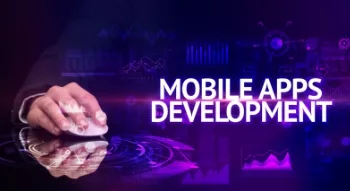According to job market insights from Indeed, React.js has emerged as the second most sought-after programming skill in 2021, experiencing a remarkable 33% surge in demand compared to the previous year. This statistic not only underscores the widespread adoption of React.js but also hints at the rise to hire dedicated MERN developer.
MERN Stack — a powerful combination of MongoDB, Express.js, React.js, and Node.js — emerges as a compelling force in web development. In this article, we will dive deep into the trends, success stories, challenges, and best practices, shedding light on how the MERN Stack will become a cornerstone of the future of web development.
Stay with us and explore possibilities with MERN.
The Current State of MERN Stack
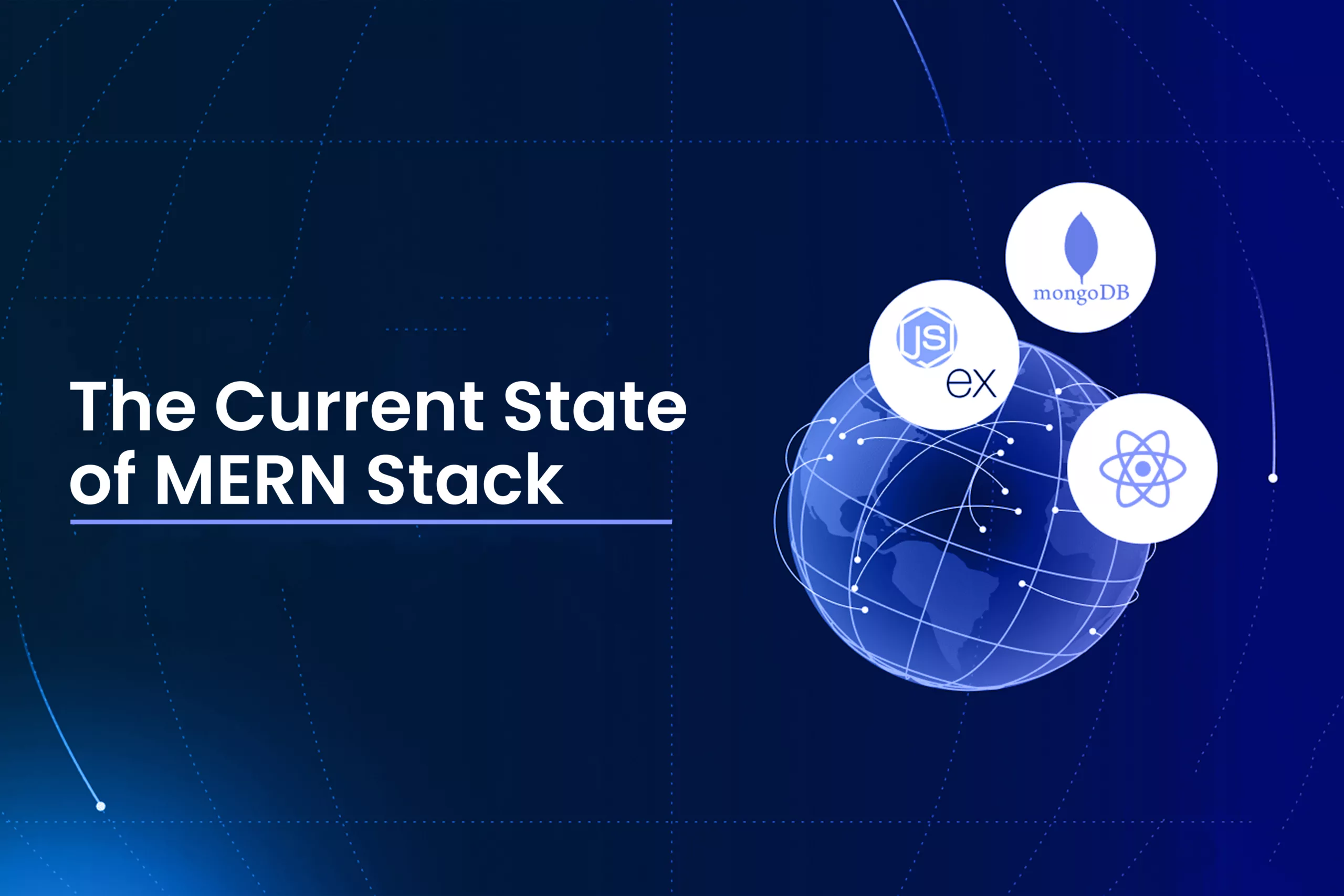
The MERN Stack, comprising MongoDB, Express.js, React.js, and Node.js, is a leading technology stack in modern web development. As of 2024, MERN Stack is robust and dynamic, reflecting the continuous evolution of each component and the collective synergy they bring to web applications.
Recent Trends and Adoption Rates
In recent years, the MERN Stack has gained popularity among developers and businesses. MERN components’ ease of integration, flexibility, and efficiency have contributed to its widespread adoption. Frameworks like React.js have become dominant players in the front-end development landscape, while Node.js has gained traction for server-side applications. The rising demand for full-stack development expertise has further fueled the growth of MERN Stack adoption.
Success Stories of Companies Using MERN Stack
Numerous tech giants and startups have successfully implemented the MERN Stack in their projects. Companies like Facebook, Instagram, DropBox, and Netflix have leveraged the strengths of MERN to build scalable, responsive, and feature-rich applications. These success stories testify to the MERN Stack’s ability to handle diverse use cases across different industries.
Key Features and Advantages of MERN Stack
The MERN Stack offers a range of features and advantages that contribute to its popularity:
- Full Stack Development: MERN enables developers to work seamlessly across the entire application stack, from the database to the user interface.
- JavaScript Everywhere: The entire stack is built using JavaScript, simplifying the development process and fostering code reusability.
- Community Support: Each component of the MERN Stack has a vibrant and active community, providing developers with resources, tutorials, and support.
- Scalability: MERN components are designed to be scalable, making them suitable for both small projects and large-scale applications.
- Flexibility: Hire dedicated MERN developers to choose the components that best suit their project requirements, allowing for a customized and efficient development process.
Challenges and Solutions in MERN Development
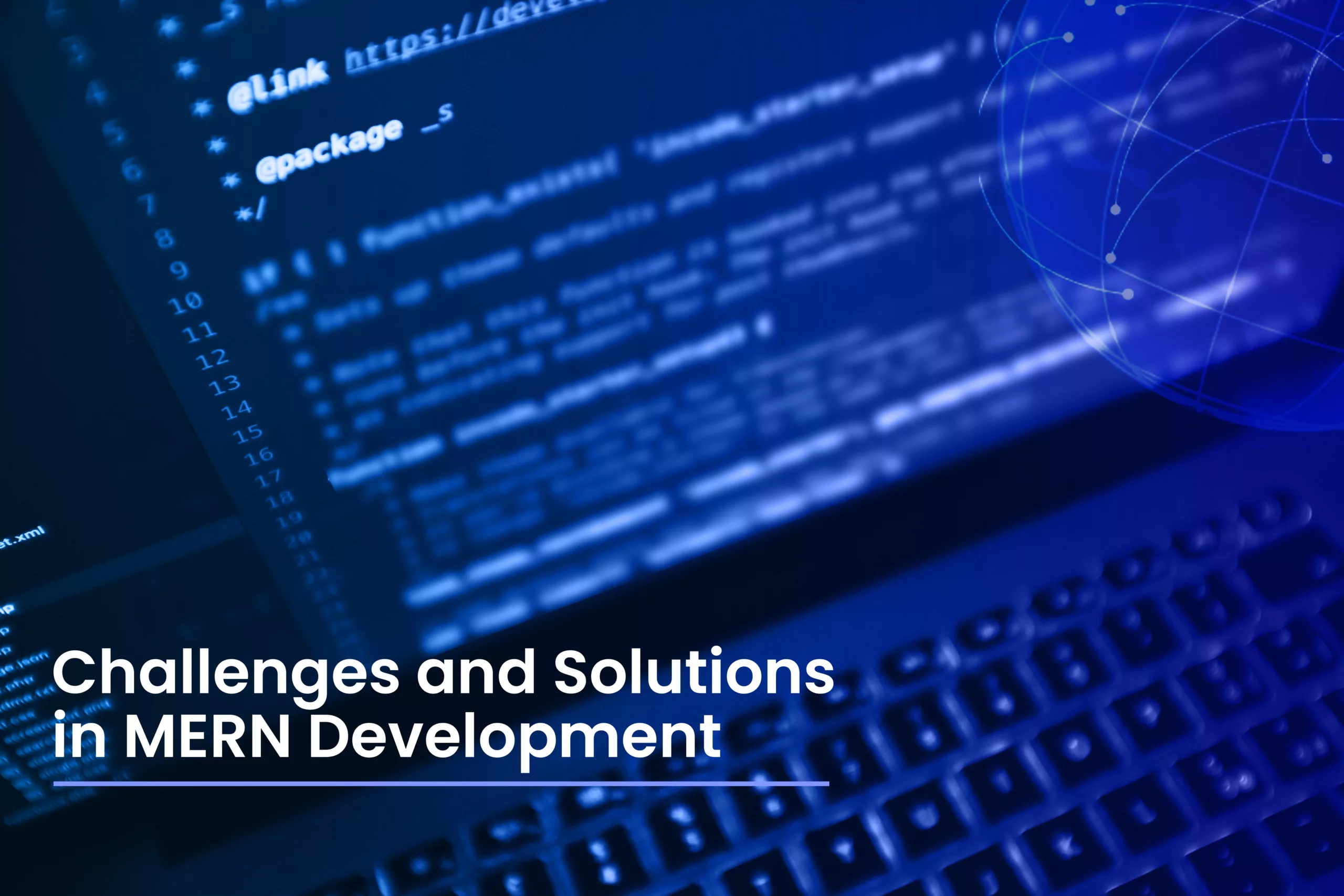
While the MERN Stack offers a powerful and versatile development environment, developers encounter challenges during the development lifecycle. Identifying these challenges and implementing effective solutions is crucial for ensuring smooth and efficient MERN development.
Scalability Challenges
- Challenge: As applications grow in complexity and user base, ensuring seamless scalability becomes challenging. Node.js, although known for its scalability, might face issues in handling extensive computational tasks.
- Solution: Implement microservices architecture, where different components of the application run as independent services. This facilitates easier scaling and maintenance, allowing developers to address specific scalability concerns more effectively.
Security Concerns
- Challenge: Security is a paramount concern in web development, and MERN Stack applications are no exception. Cross-Site Scripting (XSS) and Cross-Site Request Forgery (CSRF) are potential vulnerabilities that developers need to address.
- Solution: Utilize secure coding practices and employ frameworks and libraries that provide built-in security features. Regularly update dependencies, conduct security audits, and implement authentication and authorization mechanisms to mitigate common security risks.
Performance Optimization
- Challenge: Achieving optimal performance, especially in React.js applications, can be challenging, particularly when dealing with a large number of components and complex user interfaces.
- Solution: Implement code-splitting to load only necessary components, optimize rendering with tools like React.memo, and leverage virtualization techniques for large lists. Regularly profiling and optimizing the application using tools like Chrome DevTools can significantly enhance performance.
Complex State Management
- Challenge: Managing state in large-scale React.js applications can become complex, leading to potential bugs and difficulties in maintaining code.
- Solution: Implement state management solutions like Redux or Context API to effectively handle application state. Break down components into smaller, manageable units and adhere to best practices for state management to ensure code maintainability and scalability.
Integration and Versioning Issues
- Challenge: Coordinating updates and ensuring compatibility between different MERN components, especially with third-party packages, can be challenging.
- Solution: Maintain a comprehensive understanding of the versioning compatibility between different components. Regularly update dependencies and perform thorough testing after updates to identify and resolve integration issues promptly.
Learning Curve for Full-Stack Developers
- Challenge: Full-stack developers new to the MERN Stack may face a steep learning curve due to the diverse technologies involved.
- Solution: Encourage continuous learning and provide resources and training to facilitate a smoother transition. Leverage online documentation, tutorials, and community forums to support developers in mastering each component of the MERN Stack.
Integration of MERN Stack with Emerging Technologies
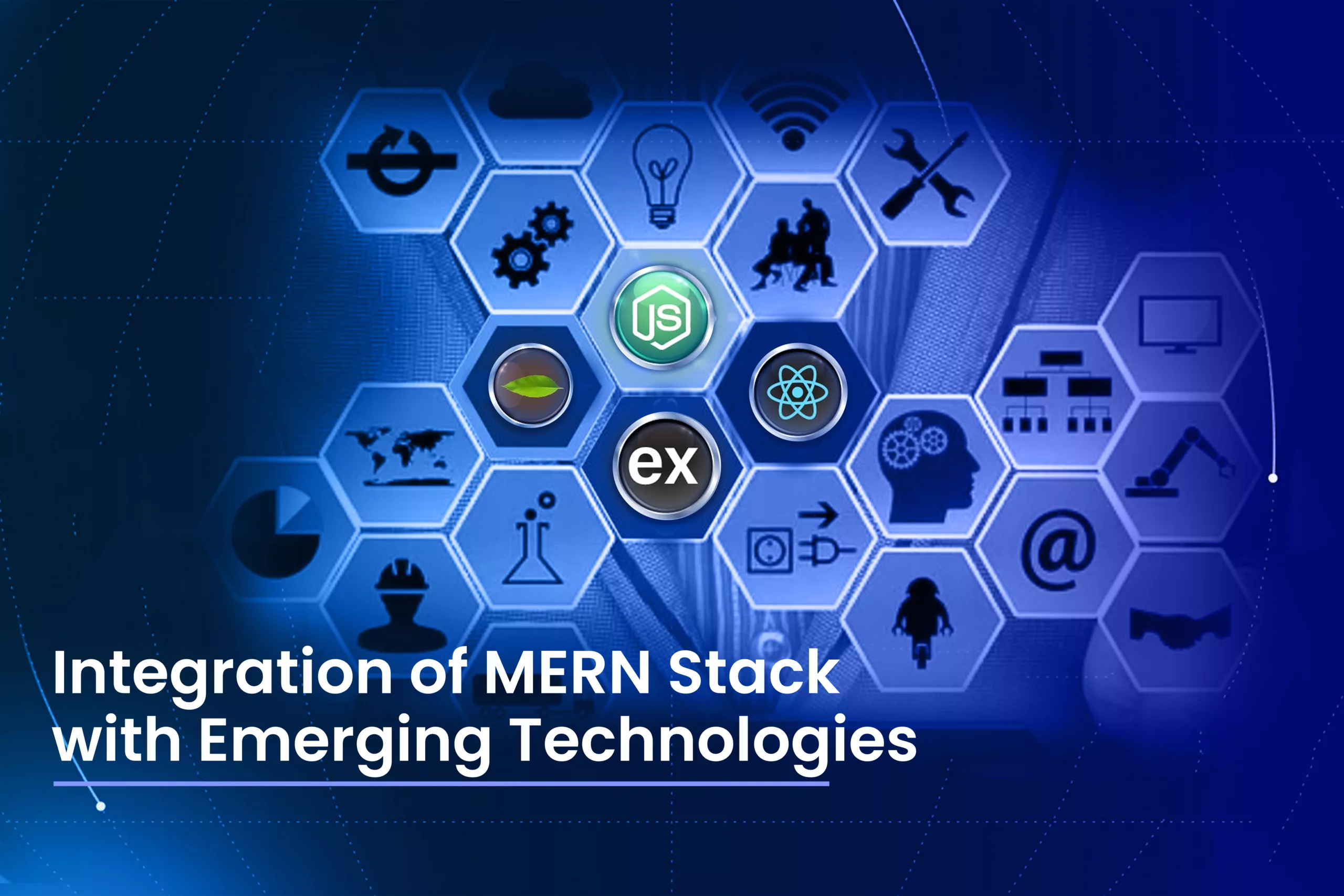
The MERN Stack continues to adapt and integrate with emerging technologies, enhancing its capabilities and expanding its potential applications. The seamless compatibility of MongoDB, Express.js, React.js, and Node.js allows developers to incorporate cutting-edge technologies into MERN applications. Here’s a closer look at how the MERN Stack integrates with some of the key emerging technologies:
Artificial Intelligence (AI) and Machine Learning (ML)
- Integration: MERN Stack applications can leverage AI and ML models for enhanced user experiences, predictive analytics, and automation. Node.js, with its non-blocking architecture, is well-suited for handling asynchronous tasks, making it suitable for integrating AI and ML functionalities seamlessly.
- Use Cases: Implement chatbots for customer support, recommendation engines for personalized content, and predictive analytics for data-driven decision-making within MERN applications.
Internet of Things (IoT)
- Integration: Node.js, known for its lightweight and event-driven architecture, is ideal for handling the real-time communication and data processing requirements of IoT devices. MERN applications can utilize MongoDB to store and retrieve data from IoT devices and Express.js to build robust APIs.
- Use Cases: Monitor and control IoT devices through MERN-based dashboards, analyze and visualize sensor data, and facilitate communication between web applications and IoT devices.
Progressive Web Apps (PWAs)
- Integration: React.js, with its component-based architecture, is well-suited for building PWAs that offer a native app-like experience on the web. The MERN Stack’s ability to handle dynamic updates and real-time data makes it suitable for developing responsive and engaging PWAs.
- Use Cases: Create offline-capable applications, enable push notifications, and enhance performance with the ability to cache and serve content locally by integrating PWA features.
Blockchain Technology
- Integration: Express.js can be utilized to build robust backend APIs for blockchain applications, while MongoDB provides a flexible data storage solution. React.js can be employed for the frontend, creating user interfaces that interact with blockchain networks.
- Use Cases: Develop decentralized applications (DApps), integrate blockchain-based authentication systems, and leverage smart contracts within MERN applications.
Augmented Reality (AR) and Virtual Reality (VR)
- Integration: React.js can build immersive user interfaces for AR and VR applications, while Node.js handles real-time communication and Express.js manages server-side logic.
- Use Cases: Create MERN applications that offer AR/VR experiences, such as virtual tours, product visualization, and training simulations.
Serverless Architecture
- Integration: Node.js, with its event-driven and non-blocking nature, is well-suited for serverless computing. MERN applications can be deployed on serverless platforms, allowing for automatic scaling and cost efficiency.
- Use Cases: Implement serverless functions for specific tasks, deploy serverless APIs, and leverage serverless computing to handle varying workloads efficiently.
Best Practices and the Future of MERN Stack Development
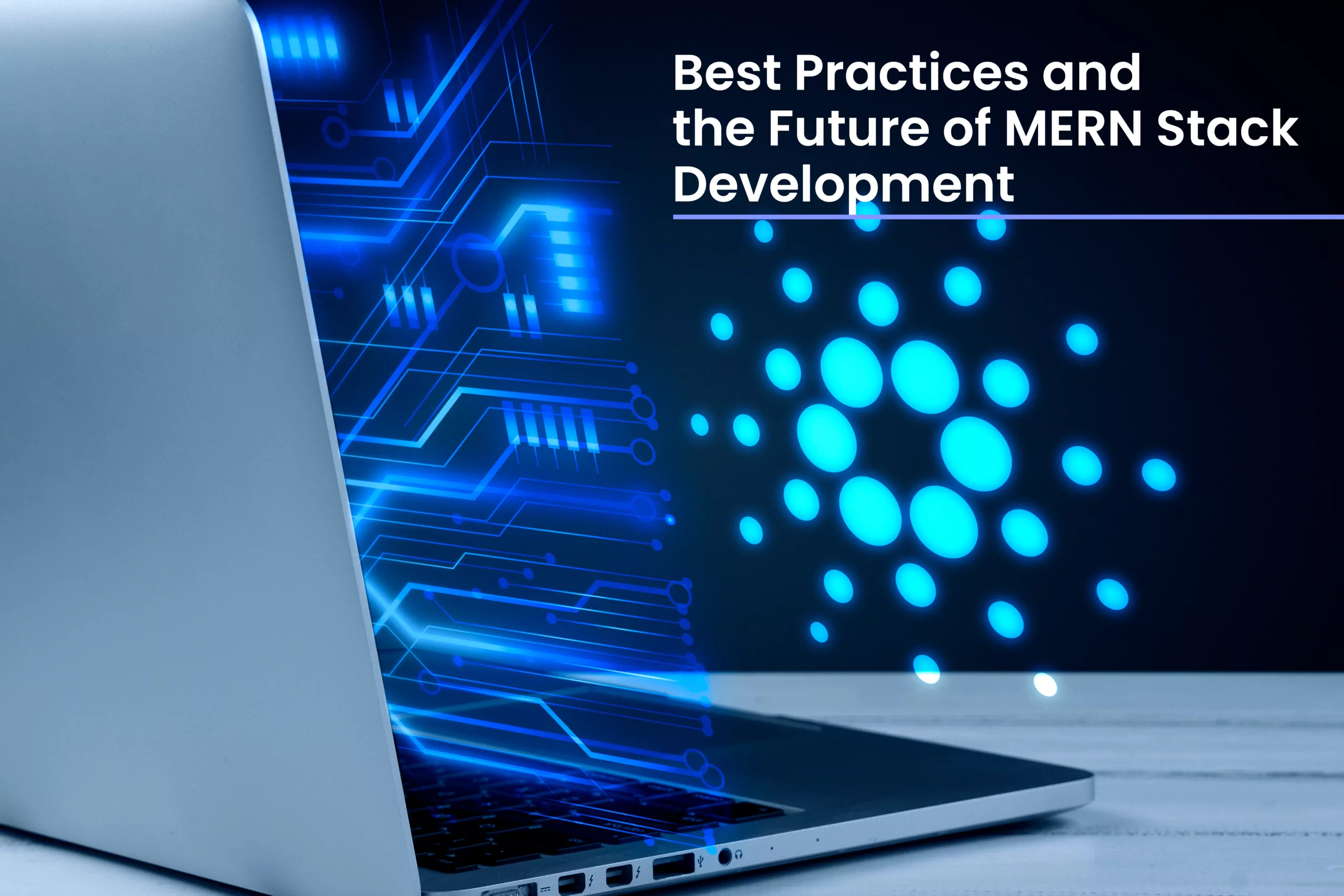
As the MERN Stack continues to be a popular choice for web developers, staying abreast of best practices is essential for creating robust, scalable, and maintainable applications. Here are some best practices for MERN development in 2024 and beyond:
Adopt Modular and Component-Based Design
Embrace a modular and component-based design approach, particularly in React.js. Break down the application into reusable components, promoting code maintainability, scalability, and ease of collaboration among developers.
Implement Server-Side Rendering (SSR) or Static Site Generation (SSG)
Improve application performance and search engine optimization (SEO) by implementing server-side rendering or static site generation. Tools like Next.js can be utilized to streamline the implementation of SSR or SSG in React.js applications.
Use Functional Components and Hooks
Emphasize the use of functional components and hooks in React.js development. Functional components are more concise and facilitate the use of hooks, which simplify state management and side effects, enhancing code readability and maintainability.
Optimize for Performance
Regularly audit and optimize your MERN application for performance. Employ tools like Chrome DevTools and Lighthouse to identify and address bottlenecks. Implement code splitting, lazy loading, and other performance optimization techniques to ensure fast load times and a smooth user experience.
Employ State Management Wisely
Choose an appropriate state management solution based on the complexity of your application. For smaller applications, leverage React’s Context API, while larger applications may benefit from the predictability and centralization provided by state management libraries like Redux.
Ensure Scalability with Microservices
Design your MERN application with scalability in mind. Consider adopting a microservices architecture, where different features or modules of your application are developed and deployed independently. This allows for better scalability and maintainability.
Prioritize Security Measures
Implement security best practices across all layers of your MERN application. Sanitize user inputs, use parameterized queries to prevent SQL injection, enforce HTTPS, and keep all software components updated to patch known vulnerabilities. Regularly conduct security audits and vulnerability assessments.
Automated Testing and Continuous Integration
Implement a robust automated testing strategy for both the front-end and back-end components. Utilize testing frameworks like Jest for React.js and Mocha/Chai for Node.js. Integrate continuous integration tools to automate the testing process, ensuring code quality and reliability.
Document Your Code Thoroughly
Maintain comprehensive and up-to-date documentation for your MERN application. This includes API documentation, component documentation, and general code comments. Well-documented code facilitates collaboration among developers, eases onboarding, and simplifies maintenance.
Stay Updated on Framework and Library Versions
Regularly update your MERN Stack components and dependencies to benefit from the latest features, performance improvements, and security patches. Keep a watchful eye on release notes and community updates to stay informed about changes and best practices.
Hire Dedicated MERN Developer to Stay Ahead of the Curve
Looking to hire dedicated MERN developer who stays updated with the latest trends and is geared up for future innovations? VinnCorp has got you covered.
We are a remote talent company that provides MERN developers with years of experience and a proven track record. From creating dynamic and scalable applications to staying ahead of the technological curve, our developers are committed to delivering cutting-edge solutions that align with your business objectives.
Get in touch with us today to witness the achievement of your business goals.



